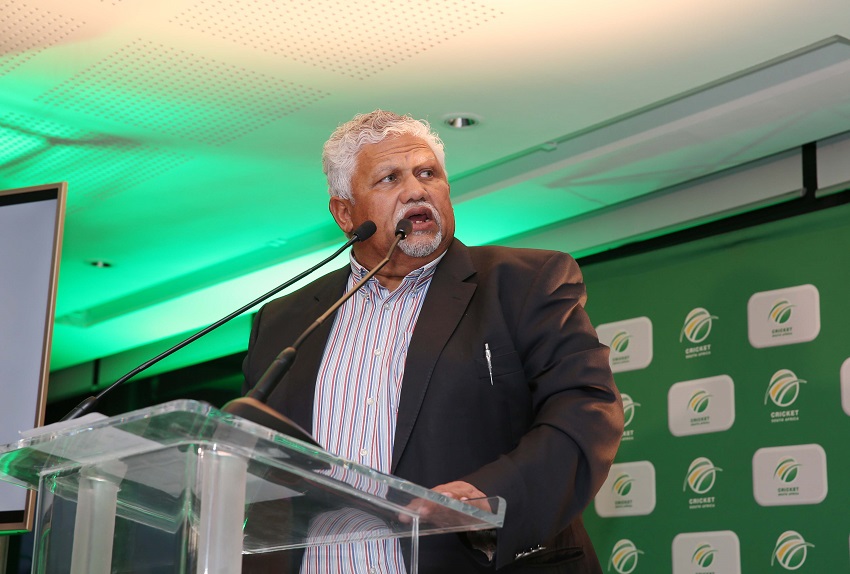Cricket South Africa’s concerted attempts to keep the full Fundudzi report hidden from public view on the basis of their fear of legal exposure are played out, writes RYAN VREDE.
On Friday, CSA released the full Fundudzi report to the Parliamentary portfolio committee on sport (PPC). This was no voluntary handover, as CSA would like the public to believe. They were forced to do so due to immense political pressure.
There has been an equal measure of pressure from the country’s cricket public, who is insistent that the full report – which details incidents dating back to 2016 – is a matter of public interest. CSA’s attempts to appease and placate that group came in the form of a summary of the report released on Monday. It was deeply dissatisfying because it trained its focus on a handful of men, who are pinned for various forms of maladministration, former CEO Thabang Moroe being the central figure. It is hard to believe that they are the only ones involved in the destruction of cricket’s governing body.
The PPC hinted at its suspicion of a large-scale cover-up in a meeting with members of CSA’s executive leadership on Tuesday. CSA strongly denied such a cover-up is the reason behind the delays in making the full report public, arguing that Covid-19 protocols have delayed the process.
This argument is weakened by the fact that TimesLive this week reported that it has seen an internal memo which circulated in July, in which the CSA board proposed that the members’ council – the highest decision-making body made up of the 12 affiliates‚ including the president and vice-president – considers and ratifies the board’s decision to request the forensic consultant‚ Fundudzi Forensic Services‚ to ‘provide the board with certain information/reports related to the conduct of certain CSA management team members‚ to the exclusion of any information/reports related to the investigation of the conduct of the board and members’ council as envisaged by the terms of reference’.
For those not fluent in CSA, allow me to translate: ‘Get Moroe and co, not us.’
But now the PPC is in possession of the 500-page report and have complete power to determine whether to release it publicly, or deem legitimate CSA’s argument that the disclosure thereof will expose them to litigation given that they have yet to test the findings and conclusions of the report.
CSA has been in possession of the report since July and thus has had ample time to unpack the findings and conclusions in a manner that could protect them from legal exposure. So their argument is actually an indictment of their own leadership, especially as it pertains to matters fundamentally harming cricket in South Africa.
And while the CSA board isn’t appointed through a process of public voting, and thus see itself as not answerable to the public, government officials have a clear mandate to serve the public.
The PPC will likely decide the report’s fate before they meet with CSA again on Tuesday. The PPC is taking legal advice on both courses of action, but the majority on the committee is leaning towards public disclosure of the full report.
Sport24‘s Sibusiso Mjikeliso reports that senior parliamentary legal advisor Frankie Jenkins wrote to the PPC on Thursday, advising it to release the report to the public, given that Parliament is constitutionally obliged to maintain openness with the public.
‘Indeed, one of the basic values and principles governing public administration is transparency,’ Jenkins wrote. ‘Section 59 of the Constitution makes it clear that the National Assembly “must conduct its business in an open manner” and “may not exclude the public, including the media, from a sitting committee unless it is reasonable and justifiable to do so in an open and democratic society”.
Mjikelso notes there are provisions made in the National Assembly for public exclusions, particularly where ‘… the concealment of information in cases where matters discussed are private and prejudicial to particular persons or the information is protected under parliamentary privilege or the law’.
It is critical that those implicated in the maladministration and subsequent destruction of CSA be given the opportunity to respond to the allegations. Why it hasn’t had the opportunity yet, or hasn’t provided adequate explanations in the three months since CSA took possession of the report, remain a mystery.
CSA has dragged its heels on this urgent matter and, in doing so, forfeited the grace they ask for.
It’s time for the people to know the truth.







